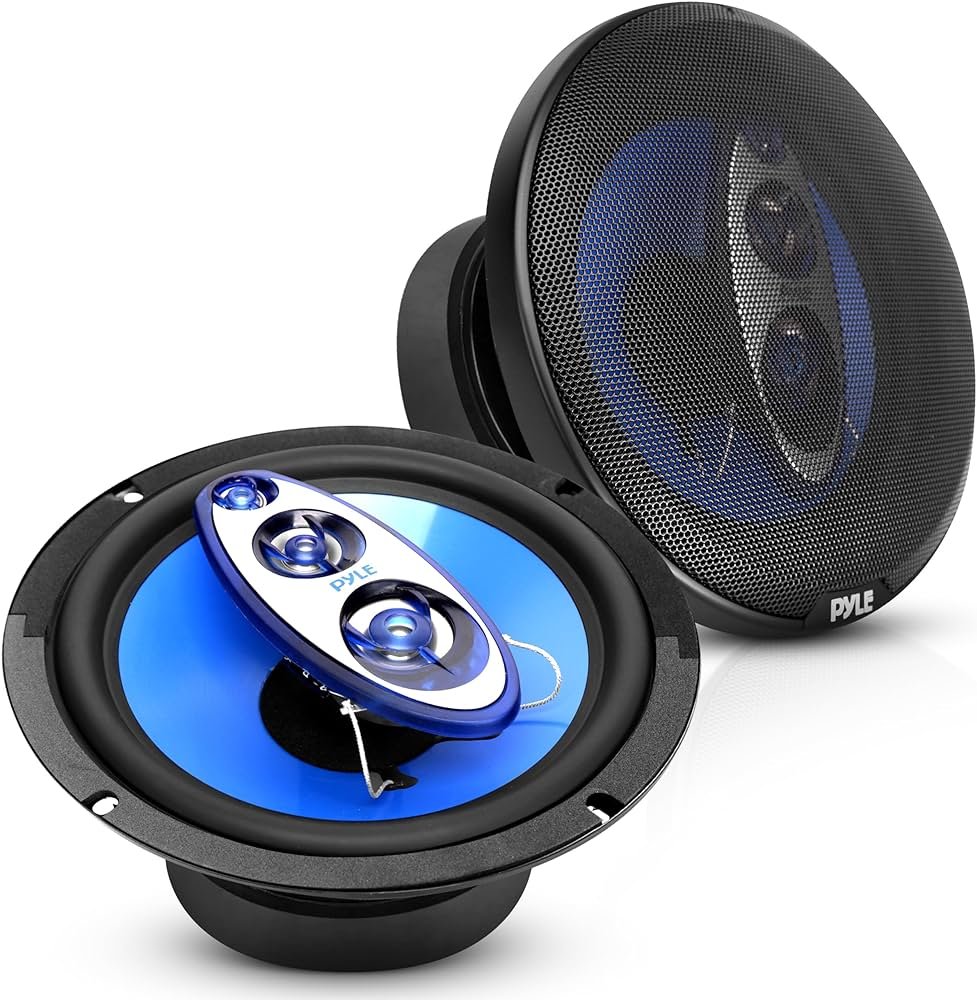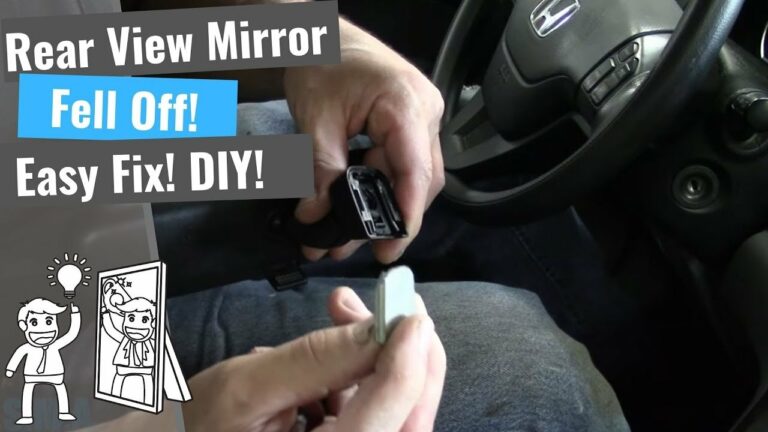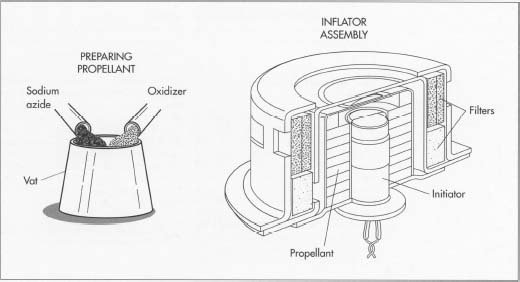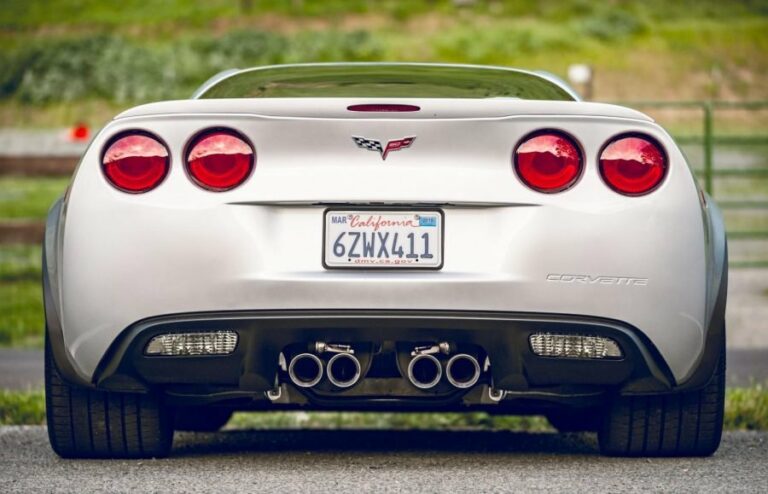Why Car Speakers Are Not as Loud as They Used to Be
Are you finding that your car speakers aren’t as loud as they used to be? Well, you’re not alone. Many car owners have experienced this frustrating issue, where the once vibrant and powerful sound has gradually diminished. But fret not, because there are simple steps you can take to restore the volume and quality of your car speakers.
In this article, we will explore the possible reasons behind the decrease in loudness and provide you with practical solutions to get your car speakers back to their former glory. So, let’s dive into the world of audio troubleshooting and uncover the secrets to reviving your car’s sound system.
Why Car Speakers Are Not as Loud as They Used to Be
Car speakers have come a long way in terms of technology and sound quality over the years. However, many car owners often notice that their speakers are not as loud as they used to be.
This decrease in volume can be frustrating, especially for those who enjoy listening to music while driving.
In this article, we will explore the reasons behind this phenomenon and discuss potential solutions.
1. Speaker Wear and Tear
One of the most common reasons why car speakers are not as loud as they used to be is wear and tear.
Over time, the speaker components such as the cone, voice coil, and surround can deteriorate, resulting in a decrease in sound output.
Factors such as high volume levels, exposure to extreme temperatures, and prolonged use can contribute to this wear and tear.
1.1 High Volume Levels
Listening to music at high volumes for extended periods can put stress on the speaker components, causing them to wear out quickly.
Continuous exposure to high volumes can lead to distortion, reduced clarity, and even the eventual failure of the speakers.
1.2 Extreme Temperatures
Extreme temperatures can also affect the performance of car speakers. Exposure to heat or cold can cause the speaker materials to expand or contract, leading to changes in their structural integrity. This can result in reduced sound quality and volume.
1.3 Prolonged Use
Just like any other mechanical device, car speakers have a finite lifespan. Continuous use over several years can gradually degrade the speaker components, resulting in decreased loudness.
Drivers who spend a significant amount of time on the road may notice this decline more quickly than occasional drivers.
2. Speaker Connections
Another factor that can contribute to a decrease in loudness is faulty speaker connections.
Over time, the speaker wires may come loose or get damaged, impacting the electrical signal transmitted to the speakers.
A poor connection can lead to reduced power delivery and subsequently lower volume levels.
2.1 Loosened Wires
Vibrations and movement in the car can gradually loosen the speaker wires, causing intermittent or poor connections.
This can result in reduced sound output and even complete signal loss in some cases. Regularly checking and tightening the speaker connections can help restore optimal loudness.
2.2 Damaged Wires
In some instances, the speaker wires themselves may become damaged due to wear or accidents. If the insulation on the wires gets compromised, it can lead to short circuits or signal loss, affecting the volume of the speakers. Inspecting the speaker wires for any visible damage and replacing them if necessary can help improve loudness.
3. Factory Speaker Limitations
The speakers that come pre-installed in most cars are often not designed to deliver the loudest sound possible.
Manufacturers typically prioritize factors such as cost, space constraints, and energy efficiency when selecting speakers for their vehicles.
As a result, the speakers may not have the power or the design capabilities to produce extremely loud sounds.
Power Limitations
Factory-installed car speakers are usually powered by the car’s built-in amplifier or head unit. These power sources may not provide enough wattage to drive the speakers to their maximum potential. Therefore, the speakers may not reach high volume levels that exceed their power limitations.
Size and Design Constraints
Car manufacturers also need to consider space limitations and aesthetic preferences when designing speaker systems. This often results in smaller speaker sizes that may not be able to produce as much sound as larger ones. Additionally, the speaker placement and enclosure design may not be optimized for maximum loudness.
4. Audio Source Quality
The quality of the audio source can significantly impact the loudness of car speakers. Even if the speakers are capable of producing high volumes, a low-quality audio file or poor sound production from the source device can hinder the overall listening experience.
Low-Quality Audio Files
Using low-bitrate audio files or streaming services with low-quality compression algorithms can result in diminished sound quality and reduced loudness. These files may lack the necessary audio information to reproduce high-volume sounds accurately. Upgrading to higher-quality audio files can help improve the loudness and overall sound reproduction.
Inadequate Source Devices
The quality of the source device, such as a smartphone or an audio player, can also affect the loudness of car speakers. Some devices may have weaker amplifiers or limited sound output capabilities, which can prevent the speakers from reaching their full potential. Using higher-quality source devices with robust amplification can result in louder and more enjoyable audio experiences.
5. Environmental Factors
The environment in which the car is driven can also play a role in the perceived loudness of the speakers. Various external factors can interfere with the sound propagation and make the speakers appear quieter than usual.
Road Noise
Road noise can be a significant hindrance to the perceived loudness of car speakers. The sound of the engine, wind, and tires can mask the audio signals coming from the speakers, making them appear quieter.
Soundproofing the car’s interior and installing additional insulation can help reduce road noise and enhance the overall listening experience.
Acoustic Reflections
The acoustics of the car’s interior can impact the loudness of the speakers. Hard surfaces, such as glass or plastic, can cause sound reflections that interfere with the direct sound from the speakers. This can result in a loss of loudness and clarity.
Adding sound-absorbing materials or adjusting the speaker placement can help minimize acoustic reflections and improve loudness.
In conclusion, there are several reasons why car speakers may not be as loud as they used to be. Factors such as wear and tear, faulty connections, factory limitations, audio source quality, and environmental factors can all contribute to the decrease in loudness. By understanding these factors, car owners can take appropriate measures to improve the loudness of their speakers and enjoy a better audio experience while on the road.
Speaker Sounds Awful or Not Working at All? Diagnose Speakers in Your Car or Truck!
Faqs for Why Car Speakers Are Not as Loud:
There could be several reasons why your car speakers are not as loud as they used to be. One possibility is that there is a problem with the amplifier or receiver that powers the speakers. It may be malfunctioning or not providing enough power to drive the speakers to their full potential.
Another possibility is that the speakers themselves are damaged or worn out, which can affect their ability to produce loud and clear sound.
Additionally, there might be an issue with the audio settings or equalization, such as a decrease in volume level or unintentional adjustment of balance and fade settings.
Lastly, there could be an electrical issue, such as a loose or faulty connection, that is causing the speakers to underperform.
If your car speakers are not loud enough, you can try a few troubleshooting steps to potentially resolve the issue. First, check the audio settings on your car stereo or receiver to ensure that the volume level is appropriately adjusted.
Additionally, make sure that the balance and fade settings are properly set to ensure that the sound is evenly distributed to all speakers. If the problem persists, inspect the speakers for signs of damage or wear and consider replacing them if necessary.
It’s also worth checking the amplifier or receiver to ensure it is functioning correctly and providing enough power to drive the speakers adequately. Lastly, verify all connections are secure and free from any loose wires or connections.
Over time, car speakers can lose their loudness due to a variety of factors. The most common reason is wear and tear.
Continuous exposure to vibrations, temperature fluctuations, and moisture can cause the internal components of speakers to degrade, resulting in reduced loudness and overall sound quality.
Additionally, if the speakers are regularly operated at high volumes, they may experience premature wear, leading to decreased loudness.
It is also possible that the speakers were not properly matched with the amplifier or receiver, resulting in insufficient power delivery and subsequently reduced loudness. Regular maintenance and proper usage can help minimize these effects.
Yes, there are a few steps you can take to potentially enhance the loudness of your car speakers without necessarily replacing them.
Firstly, you can consider adjusting the equalization settings on your car stereo or receiver. Increasing the bass and treble levels can create a perception of increased loudness.
Additionally, you can install sound-deadening materials in your car’s doors or other areas near the speakers. These materials help minimize vibrations and external noise interference, allowing the speakers to produce clearer and louder sound.
Finally, make sure that the speakers are properly mounted and sealed in their respective locations to maximize their performance.
Using an external amplifier can be a good option to improve the loudness of your car speakers. An amplifier provides additional power to the speakers, allowing them to operate at higher volumes without distortion.
By delivering more power, an amplifier can make your speakers sound louder and potentially enhance the overall audio quality. However, it’s important to ensure that the amplifier is compatible with your car’s speaker setup and that it is installed correctly.
Consult a professional or refer to the manufacturer’s specifications to determine the appropriate amplifier for your speaker system and receive guidance on installation.
Final Thoughts
Car speakers not being as loud as they used to be is a common issue faced by many car owners. This decrease in volume can be attributed to various factors such as advancements in technology, changes in speaker design, and stricter regulations. While this may disappoint some audiophiles, it is important to understand that these changes are aimed at ensuring a safer and more enjoyable driving experience. Despite the decrease in loudness, car speakers today have improved in terms of sound quality and clarity. Therefore, although car speakers may not be as loud as they once were, they still provide a satisfactory audio experience for drivers.





